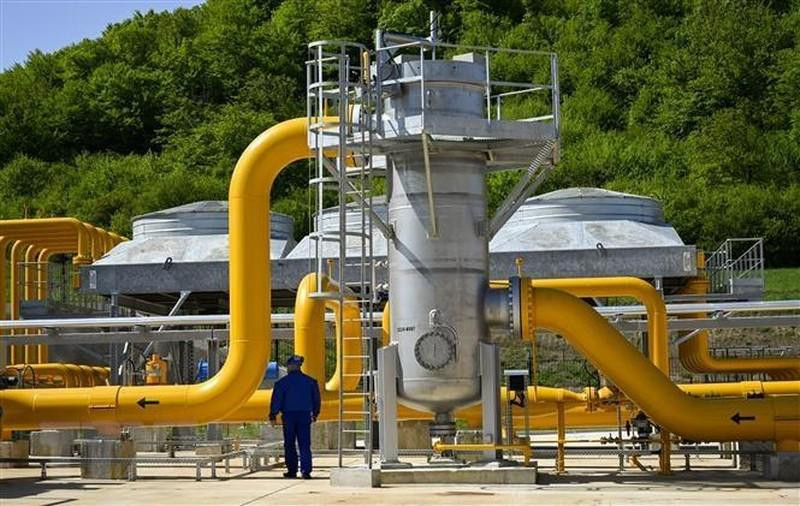At a recent energy forum in London (the UK), the CEO of multinational trading company Trafigura, B. Luckock assessed that Europe can avoid a "gas disaster" this winter, thanks to the declining demand and effective storage strategy. Meanwhile, the Executive Director of the International Energy Agency (IEA) Fatih Birol, said with gas storage at 90%, Europe will "survive" through the winter without unexpected technical problems or political upheaval.
According to new data released by the US, the amount of gas from this country exported to France increased by 421% in the first eight months, while the export value increased by 1,094% in August alone. The figures are 281% and 1,195%, respectively, in Croatia, and for the UK they are 216% and 6,797%.
One of the reasons was that the US gas exports diverted away from markets outside of Europe. Natural gas, including liquefied natural gas (LNG), is the commodity with the third-highest export value in the US, up four places over the same period in 2020 and up 15 places compared to 2016. Meanwhile, gasoline and oil took first and second place respectively. Previously, the commodity with the highest export turnover in the US was aircraft.
Another positive news report for EU countries is that Russia's state-owned energy company Gazprom has just announced that it will resume gas exports to Italy, transiting through the territory of Austria, after its suspension last weekend.
According to Gazprom, the company and its customers in Italy have found a solution to gas trading, after Austria adjusted several related regulations. The Austrian side affirmed its readiness to approve the bills of lading of Gazprom Export Company, to allow the resumption of Russian gas transit through Austria.
In early October, Gazprom said gas transit through Austria had been suspended after the company which was operating the pipeline system refused to approve the bill of lading. The Austrian side stated that Gazprom had not signed the necessary contracts.
In addition to the resumption of gas supplies from Russia, the Italian government has signed new agreements with other gas suppliers (such as Algeria and some Nordic countries), to reduce its dependence on Russia, while promoting rapid energy conversion.
Along with the improvement of gas supplies, the energy-saving strategy also helps alleviate concerns about the energy crisis in Europe.
In its quarterly gas market report, the IEA said that in Europe, gas consumption in the first eight months of this year fell 10% compared with the same period in 2021, because the industrial sector declined 15% of gas consumption, as businesses reduced production due to high costs.
According to the CEO of multinational trading company Trafigura, a 25-30% decline in energy demand within the industry, along with an effective storage management strategy and increased liquefied natural gas, can help Europe pass this winter.
However, although EU countries can temporarily escape through the cold winter of 2022, the challenges in 2023 will still be great.
Europe will need a large amount of gas to fill its storage next winter and the following years, in the context of a sharp drop in supply and Russia may stop supplying gas to many European countries. In 2021, Russia provided about 40% of Europe's gas needs. However, this figure is now down to less than 10%.
Meanwhile, analysts estimated that Europe needs to import about 200 million tonnes of LNG over the next ten years to replace Russian gas. Germany, the largest gas customer of Russia in Europe, will need about 40 million tonnes of LNG to replace 50 billion cubic meters of gas imported from Moscow via the Nord Stream pipeline.
The IEA also recently warned that Europe could face an even more severe energy crisis next year, after draining its gas reserves to weather the cold of this winter.
The above challenges of the EU are also a common concern of the regional and global economy because, in the context of the "black clouds" covering the economy, the energy crisis in the EU will cause a global economic crisis faster and more severe.
















